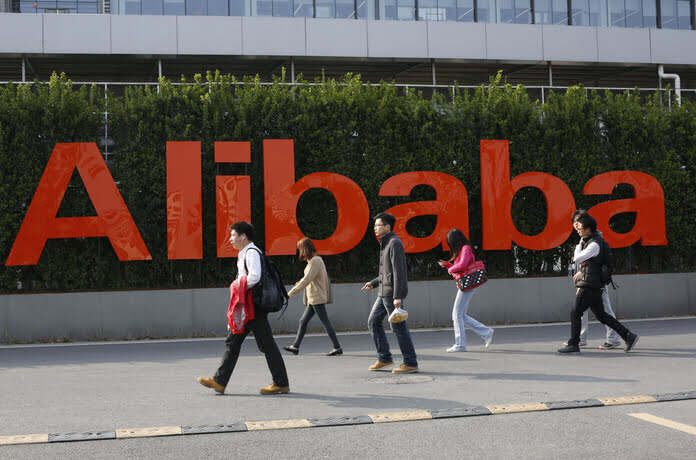Alibaba Reports Revenue Shortfall
Alibaba Group Holding Ltd. (NYSE:BABA) fell short of market expectations for first-quarter revenue on Thursday, as domestic e-commerce sales were pressured by cautious consumer spending in China’s struggling economy. The company’s revenue of 243.24 billion yuan ($33.98 billion) for the quarter ending June 30 missed analysts’ average forecast of 249.05 billion yuan, according to LSEG data.
A slow economic recovery in China, coupled with a weak property market and high job insecurity, has undermined consumer confidence and spending power in the world’s second-largest economy. This downturn has affected global firms, including Alibaba, which faces intense competition from rivals such as JD.com Inc. (NASDAQ:JD), PDD Holdings Inc. (NASDAQ:PDD) Pinduoduo, and ByteDance-owned Douyin.
Domestic E-Commerce and Market Pressures
Revenue from Alibaba’s domestic e-commerce segment fell by 1%, despite an increase in the number of purchasers and double-digit growth in purchase frequency. To attract shoppers, Chinese e-commerce giants have resorted to heavy discounting, which has pressured margins across the retail sector.
M Science analyst Vinci Zhang noted that the spending slump in China is significant, with consumers spending less, downgrading purchases, and becoming more rational. Zhang suggested that Alibaba and JD.com Inc. (NASDAQ:JD) will continue to face challenges in the second half of the year.
The mid-year e-commerce sales festival in June, a major event for China’s retail sector, saw its first-ever decline in sales according to third-party estimates, despite extended promotional efforts by major platforms.
Future Prospects and Strategic Adjustments
Despite the revenue shortfall, Alibaba’s U.S.-listed shares, which exceeded profit estimates, saw a 2% increase in early trading. Alibaba executives remain optimistic, emphasizing the potential for increased revenue through new monetization tools and improved customer management. On a call with analysts, Alibaba Group CEO Eddie Wu highlighted the company’s focus on enhancing user experience for Taobao and Tmall Group to boost gross merchandise value (GMV). Wu expressed confidence that as market share stabilizes, the focus can shift to monetization.
In March 2023, Alibaba announced a major restructuring, splitting into six units to sharpen its focus on core businesses, including domestic e-commerce. The company’s international e-commerce segment benefited from investments to expand its global presence, with revenue rising 32% to 29.3 billion yuan.
For Alibaba’s cloud segment, revenue grew by 6% to 26.55 billion yuan, up from 3% growth in the prior quarter, driven by increased public cloud adoption and strong demand for AI-related products. Alibaba has also worked to reduce low-margin project-based contracts, leveraging expanded cloud infrastructure to lower prices across its cloud products.
Net income attributable to ordinary shareholders for the quarter was 24.27 billion yuan, a decrease from 34.33 billion yuan the previous year.
Featured Image: Megapixl








